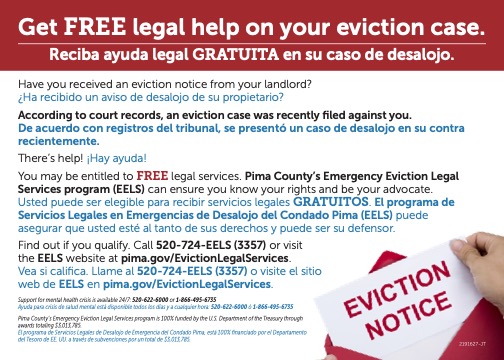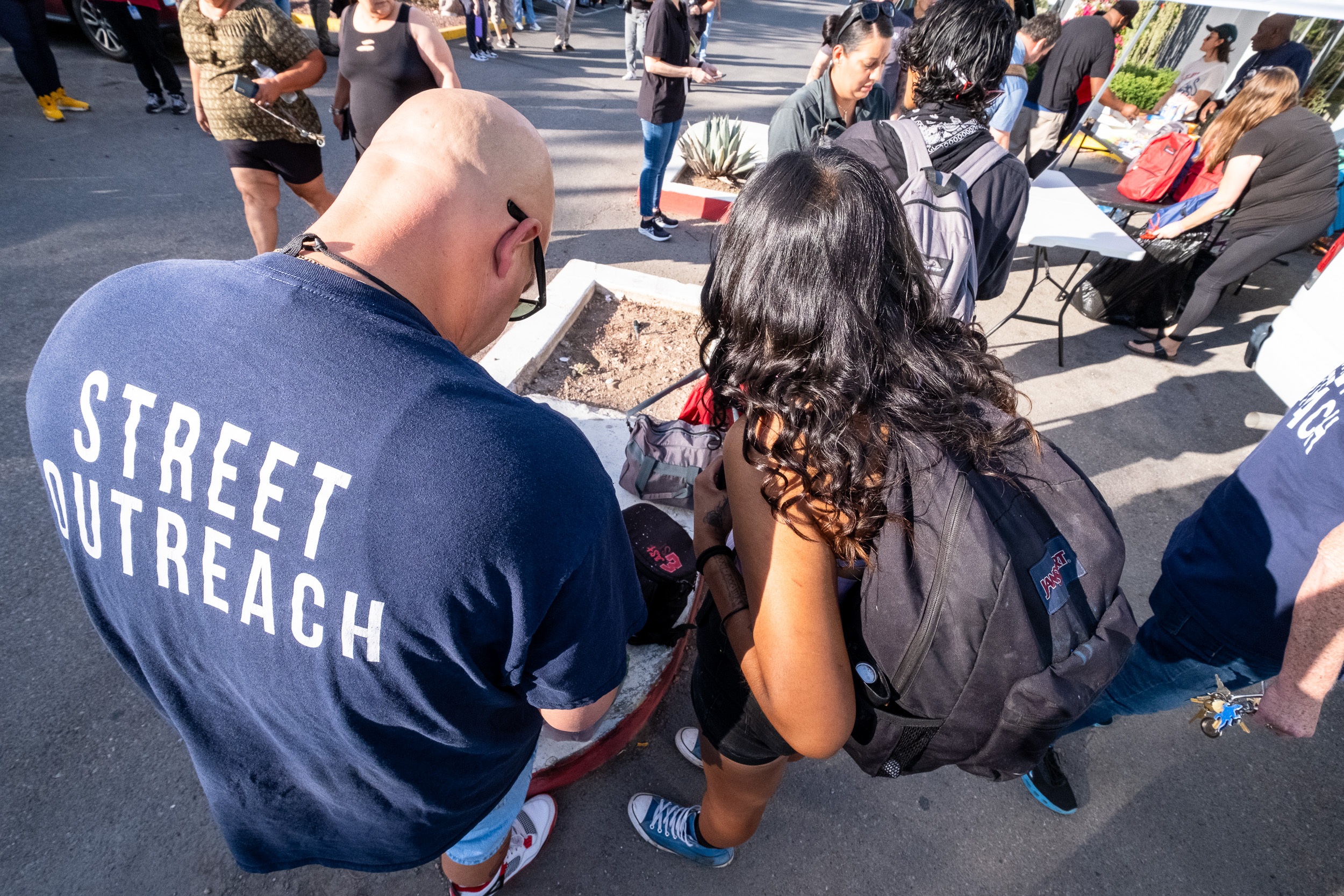Pima County supervisors voted Tuesday to continue funding the support system that helps residents facing eviction get connected to legal help through a postcard in the mail.
The Board of Supervisors voted at the Dec. 17 meeting to continue funding local legal aid organizations to help people stave off evictions.
The federal dollars are funneled through the county’s Emergency Eviction Legal Services program, which contacts people in eviction court through the postcards.
The funding will expire at the end of this fiscal year, next June. Before then, the county needs to make a decision about if and how they can continue to offer the services.
Over the past approximately three years, the county has sent out about 38,000 postcards, according to Andrew Flagg, deputy director of the county’s Department of Community & Workforce Development. Under that department is the Emergency Eviction Legal Services program, which helps people defend themselves from and navigate evictions.
Those postcards are often the first contact linking people up to a host of potential services, including emergency rent assistance and legal aid — all of it currently funded by federal dollars, which will be drying up soon.

A total of $1.78 million has been awarded to various local legal firms since early 2022. All of that money comes from the American Rescue Plan Act, a federal Covid-era relief bill. So far, no county money has been spent on the program.
For now, the county is keeping a safety net under people facing eviction until the end of the fiscal year. Supervisors voted 4-1, with Steve Christy, of District 4, voting no.
Flagg said the program has so far helped about 2,350 households with legal services and another 2,100 with emergency rental assistance.
Of the 690 people they helped provide with full legal representation, Flagg said about 60% of them were able to stay in their home.
The county has also hired four navigators to help guide people who reach out to the department looking for help.
“The whole process is fast,” Flagg said. “There’s no other kind of legal proceeding that moves as fast as evictions.” Which is why he says the county needs to be nimble. He said that they have lawyers they can call when there’s a hearing in an hour and a half. He said it doesn’t always work, but it’s worth a try.
Flagg said they have a federal grant application pending to keep working another two years, and they also could consider using county funds to keep the program going.
Public stopgaps
There is no mechanism in state law for attorneys to be appointed, as in criminal cases, for people facing eviction. There is no simple way for counties to intervene in a proactive way to get people at risk of losing their homes connected to attorneys.
“The best we’ve been able to do,” Flagg said, “We get the list every day from court for people with hearings set within the next week or so, and we take that list every day and we mail a postcard to everyone on that list.”
“I see evictions as part of the continuum of homelessness,” Flagg told Arizona Luminaria.
Approximately 7.6 million people are threatened with eviction each year, according to Princeton University’s Eviction Lab. Phoenix has one of the nation’s highest eviction rates, according to a recent article from the Wall Street Journal, based on data from the Eviction Lab.
In 2023, there were just under 13,000 evictions in Pima County, according to a dashboard maintained by the Arizona courts. The same year in Maricopa County, there were just under 78,000.
“We have a homelessness problem in our community,” Flagg said. “There’s a lot of different aspects that need intervention and we are trying to reduce the inputs, to keep people from becoming homeless in the first place.”
“What you see with households facing eviction,” Flagg said, “you see people who have been paying their rent and they hit a bump in the road.”
He said that if the county can help them keep them off the streets, they can also help keep their kids in school and keep people in their jobs and more.
“I think it’s important that we focus resources on keeping as many people from facing homelessness as possible,” Flagg said.
If you are facing an eviction, call 520-724-3357 (724-EELS) or visit pima.gov/evictionlegalservices for more information and possible help.
